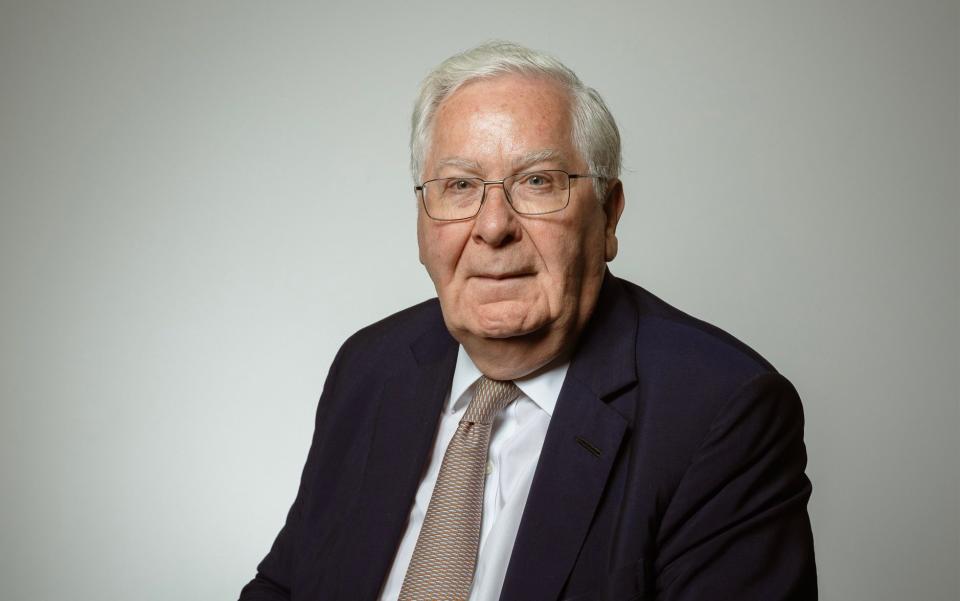
Former Bank of England Governor Lord Mervyn King has criticised “groupthink” at the central bank for fuelling the inflation crisis.
Lord King has said that a lack of dissenting voices at the Bank of England meant it failed to act swiftly and decisively enough to stop inflation from surging to a more than 40-year-high.
In a debate in the House of Lords, Lord King said: “It is troubling that not just on the [the Bank of England’s] Monetary Policy Committee but also the Federal Reserve Open Market Committee there were no dissenting voices to challenge the view that inflation was transitory.”
The former Governor, who helmed the Bank of England from 2003 to 2013, said he understood how “such groupthink came about” but complained that its impact had led “to the problems we are now all too familiar with”.
Lord King said a “lack of intellectual diversity on the Monetary Policy Committee” crisis reflected a failure across the “academic economics profession” to challenge consensus.
The result was that in both the UK and the US “at a point when it really mattered, we didn’t see a good deal of challenge to the prevailing narrative”.
Britain has suffered the worst bout of inflation since the early 1980s, with the rate of consumer price rises soaring to a peak of 11.1pc in October 2022.
The surge prompted the Bank’s policymakers to raise interest rates to a 16-year-high of 5.25pc. However, officials only began raising borrowing costs in December 2021 at a time when inflation had already climbed to 5.4pc.
Lord King said: “In 2020 and 2021 when inflation started to rise there was not a single dissenting vote on the MPC and no mention of the monetary data in the Bank’s report. Bank rate exceeded its pre-pandemic level only in May 2022.“
He warned that economists had been “foolish” to disregard the effects of a rapid growth in the amount of money circulating in the economy, following the government’s decision to spend billions of pounds supporting families and businesses during the pandemic.
Officials failed to grasp what this surge in money supply “was telling us”, Lord King said.
The former Bank chief also reiterated that the expansion of the Bank of England’s responsibilities to include a focus on climate change and the City’s competitiveness had led to an “inevitable reduction in focus on its monetary policy mission”.
It was “frankly ridiculous to suggest that central banks can have any major impact” on climate change, he said, and called for a “cull” of such secondary objectives.
Lord King said: “Expansion of central bank mandates make it more likely that governors will start to behave as politicians and try to cultivate popularity through venturing into areas well outside monetary policy.”
The scathing assessment of the record of his successors comes weeks after a highly critical report of the Bank’s forecasting abilities.
Former Federal Reserve chairman Ben Bernanke said the Bank of England’s ability to control inflation had been undermined by “significant shortcomings” in its economic forecasts.
Mr Bernanke warned the accuracy of the Bank’s predictions had “deteriorated significantly” in the wake of the pandemic as part of a highly-critical independent review.
Bank Governor Andrew Bailey accepted the findings and said Threadneedle Street needed to “adapt and develop” its forecasting process.

